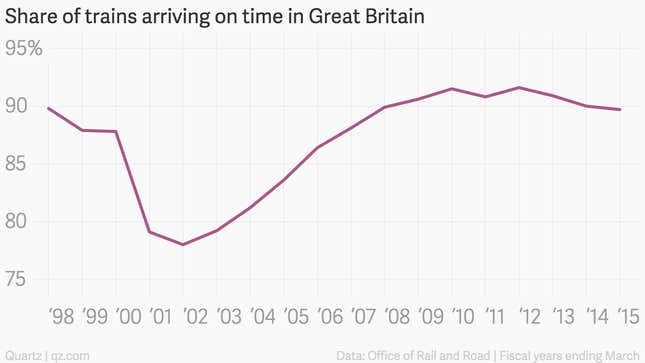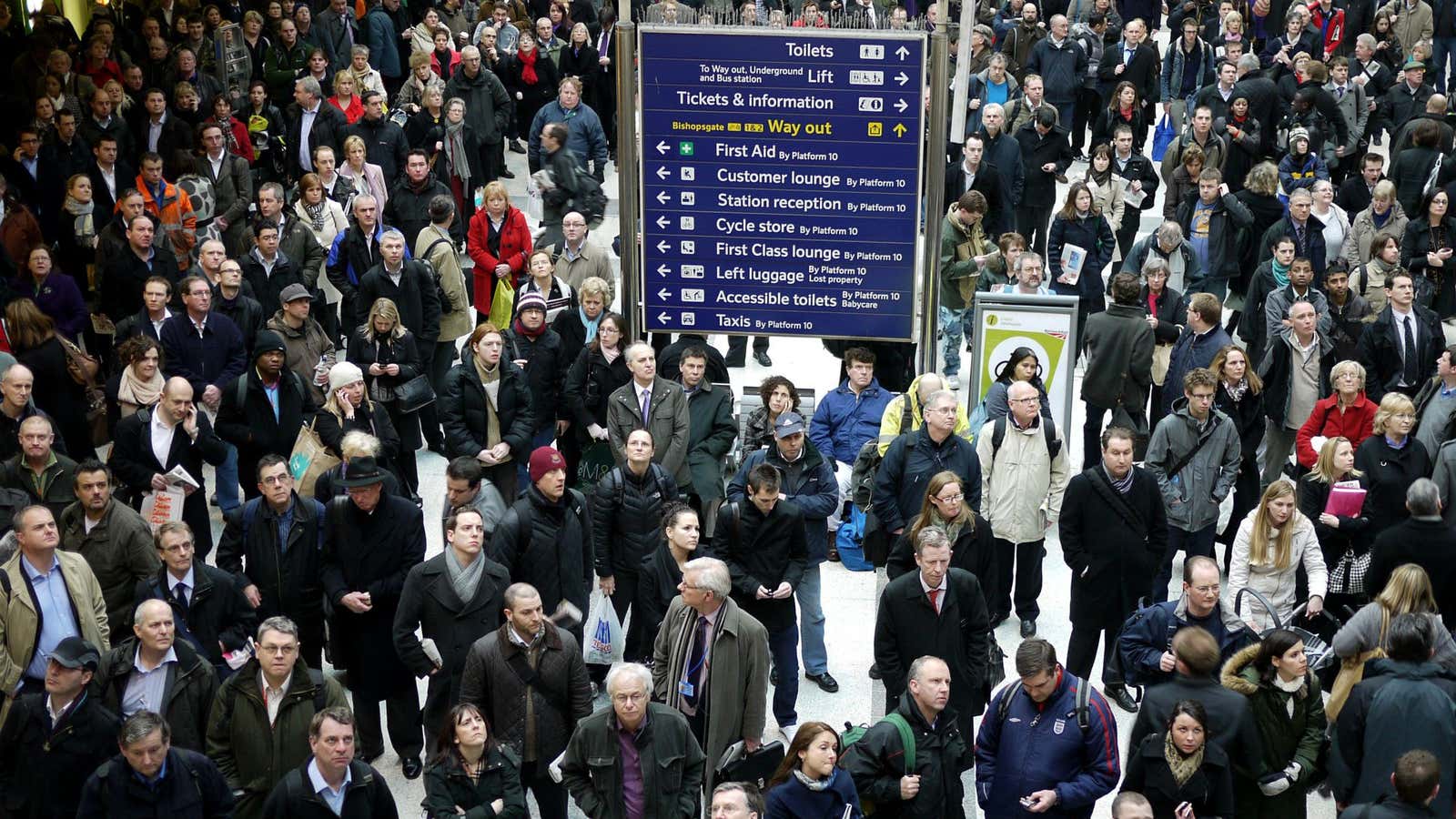Few of Britain’s disgruntled train riders will feel much sympathy for Network Rail, the state-owned operator of the country’s rail infrastructure. Today, the company reported sharply lower profit for its latest fiscal year, in part due to heavier investments in upgrading tracks, tunnels, stations, and the like. (The trains themselves are run by an array of privately owned companies.)
Network Rail spent a record £3.4 billion ($5.3 billion) on upgrades in the year to March, or more than £120 million a week. That’s double the amount it spent five years ago.
To what end? Britain’s trains carried a whopping 1.65 billion passengers in the latest financial year, up by 67 million from the year before. But this achievement is sullied by Network Rail’s punctuality performance, which has suffered despite the rapid ramp-up in spending. The share of trains that arrive within five minutes of their scheduled time for short journeys and 10 minutes for longer hauls is now around 90%—but anything below its 92.5% target triggers a fine from the government. Of the delays, Network Rail itself is responsible for 60%, it says.

By a stricter standard—arriving within one minute of schedule—only around 65% of British trains currently run on time. For the cost, in terms of both heavy government investment as well as the relatively pricey fares faced by travelers, the British rail system doesn’t compare very well with other advanced countries.
“While progress is being made in improving performance, safety, asset reliability and delivering more renewals and projects, our rate of acceleration in these areas isn’t yet where we want it to be,” said Patrick Butcher, Network Rail’s finance director.
